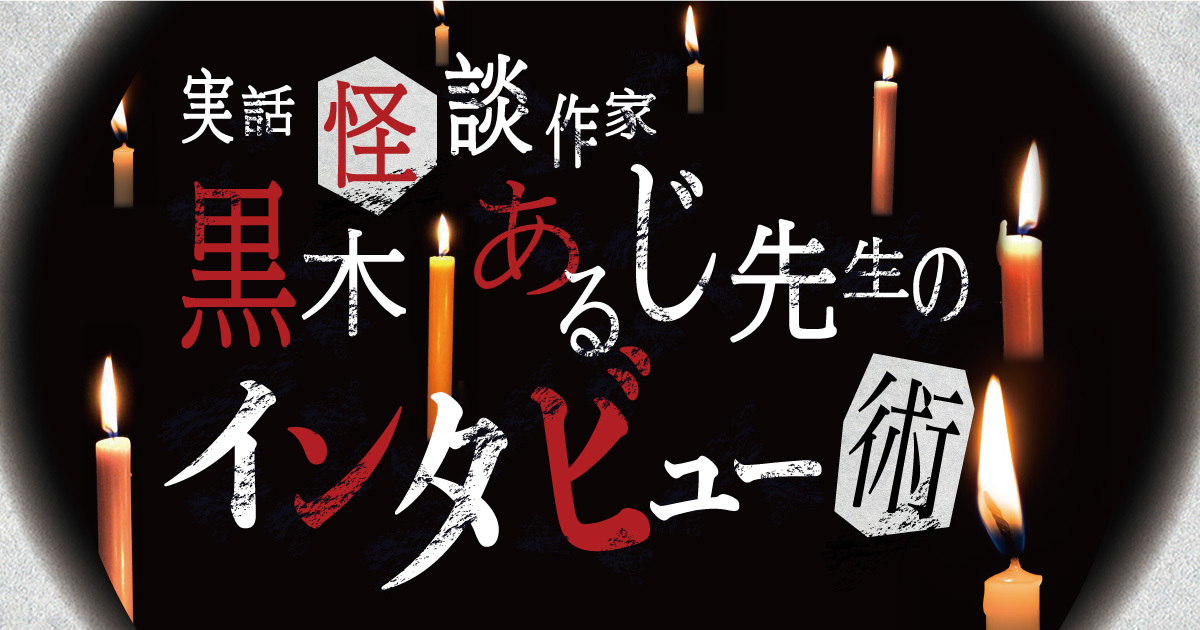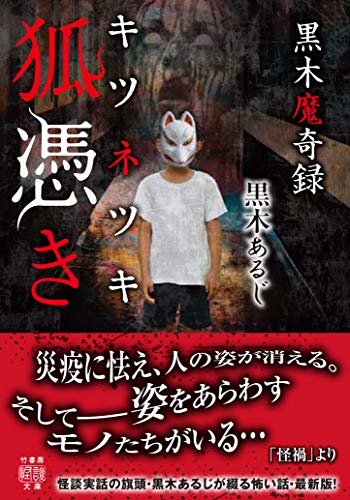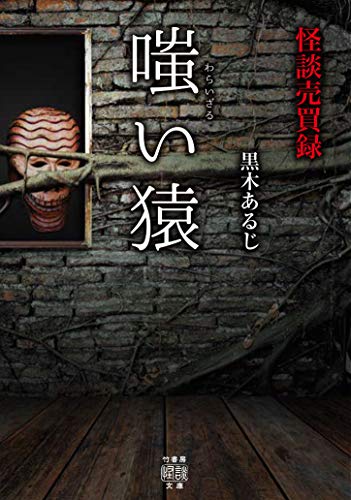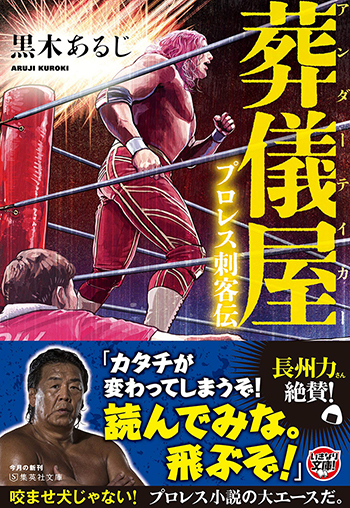聞き出すことが作品になる。実話怪談作家・黒木あるじから学ぶインタビュー術

構成/原田イチボ@HEW
“実話怪談”とは、その名の通り、誰かが実際に体験した怪談を表すジャンルのことです。作家の黒木あるじさんは、実話怪談の旗手として知られ、なんとこれまで集めた怪談の数は約3000。携わった怪談本は単著と共著を合わせて50冊を超えています。
なんと飲み屋で隣り合わせた人から怪談を聞き出すこともあるという黒木さん。初対面の相手からでもおもしろい怪談を引き出すコツとは何なのでしょうか? その秘訣を探るうちに、実話怪談の収集はもちろん、インタビューにも通じるテクニックが見えてきました。

- 黒木あるじ
-
山形県在住。『怪談実話 震』で単著デビュー。「無惨百物語」「黒木魔奇録」「怪談売買録」「怪談実話傑作選 」などシリーズ多数。共著もあわせると著作は50冊以上。
直球は返しにくい。遠回りのような近道
黒木あるじ先生による実話怪談の最新刊。
── 居酒屋で初対面の人に「怪談ありませんか?」と聞いても、「ありません」で終わっちゃいませんか?

まぁ、8割の方が「ない」と答えます。でも、そういう方が想像している怪談って、「血まみれの落ち武者が……」とか「生首が空を飛び……」みたいな派手なお話なんですよ。私のような怪談好きが欲しいのは、もっと「自分の身にも起こるかもしれない」と思わせるような、日常と非日常の境目にあるお話です。なので、怪談を聞き出すときは、まず自分が「たとえば、こういうお話です」と怪談を披露すると、相手の方も「そういう話でいいならば……」と乗ってくれたりします。
── 最初に道筋を引いてあげるんですね。

── 正直、ベタな話が出てきて困ることはありませんか? 「心霊スポットに行ったら、車に変な手形がついた」とか……。

── その部分が加わるだけで、ベタな怪談が一気に変わりますね!

── 怪談を集めるのって、気長さというか、“世間話力”みたいなものが重要なんですね。

「他人の話をおもしろがれるか」は重要だと思います。僕の知る限り、多くの怪談作家は、バカみたいに明るい性格をしていますよ。相手ものせて、自分も喋る。意外と話し好きな方が多い印象です。
アウトラインをなぞると芯が見えてくる
── 著書『怪談売買録 嗤い猿』(竹書房)の中で、「ブラッシュアップされた怪談よりも、なるべく原石の状態のものを拾いたい」と語られていましたね。先ほど「省いている部分に大切なディテールがあったりする」という発言が出ましたが、“原石”のほうがディテールを探りやすいということでしょうか?

── ブラッシュアップされきったエピソードが出てきた場合、どのように掘り下げて、ゴツゴツした原石に戻していくのでしょうか?

── ところで、飲み屋で知り合った人から怪談を聞くような場合だと、「ここについて聞いておけばよかった」と後悔しても追加取材は難しいですよね。

── 聞き漏らしがないように、取材段階で注意していることはありますか?

── やはり、そこも気長さが大事。

「とにかく怖い話を引き出さなきゃ!」という成果主義で取材すると、意外とダメなんですよね。大学時代、民俗学のフィールドワークに参加した経験が今も活きているんだと思います。たとえば祭礼行事について取材するとき、その地域の食生活や一般的な家族構成など、あえて周辺にあるものを掘り下げていくんです。そうやってアウトラインをなぞるような聞き方をしていくと、「あのような生活スタイルだからこそ、祭りにはこういう意味があって、こういう形態を取っているんだな」のように意外と芯の部分がくっきり見えてきます。
── テーマに囚われすぎてはいけないんですね。

いい怪談が多いのは「二親等」までの体験
── 取材していて、「これはウソだろう」とか「これは盛っているな」と感じることはありますか?

── どういう相手のとき、「これはウソかもしれない」と警戒しますか?

── 逆に「本人は怖がっているけど、それはただの気のせいじゃないのか?」と感じるお話はありませんか?

── 怪談を集めやすい場所はありますか? タクシー運転手は怪談をたくさん持っているイメージですが……。

── 親族に怪談を聞く発想、全然ありませんでした!

「実話」と「演出」の境界線
── 学生に怪談の書き方も教えているんですね。怪談を書き慣れていない人がやりがちな失敗はありますか?

── たしかに、「血の気が引いた」のような怪談っぽい表現を使っても、逆になんだか「聞いたことのある話」感が出てしまう……。

── 黒木先生は実話怪談を書く中で、「ここまでは演出としてOK。これ以上は、実話じゃなくなる」という線引きをどのようにしていますか?

── 作家同士で、同じ体験者さんから同じ怪談を聞く可能性はゼロではありませんよね。そういう場合、どんなところで違いが出ると思いますか?

死を扱うジャンルだからこそ、意識すること
── 亡くなった方がいる事件や災害にまつわる怪談を聞くこともあると思います。注意していることはありますか?

これらは全て僕個人の趣味の話になるんですが、陰惨な事件にまつわる怪異は、あまり好きではありません。や、僕自身そういう話も書いてますし、そういった怪談を披露される方を否定するわけではありませんが、実話であることを担保するために現実の事件や被害者をつまびらかに語るようなものは、僕の求める怖さとはちょっと違うんですね。なので、僕の場合は、ゴシップ以上の怪談としての怖さがないと、あまり事件ものは扱いません。文章にする場合も、当事者に対する誹謗中傷につながりかねない内容だったり、「現場はここ!」のようなスキャンダラスな書き方にはならないように注意しています。
── 怪談は死を扱うジャンルだからこそ、作家ひとりひとりの姿勢が問われますね。

── 実話怪談を集めていて怖くなる瞬間はありますか?

── 定期的にお祓いに行くなど、気をつけていることはあるのでしょうか?

いや、とくにありません。僕の師匠筋に当たる作家の平山夢明先生は「それで稼がせてもらっているんだから、最悪、腕の1本くらいは仕方ない」ということを話していて、僕自身もその通りだなと。何かあったらあったで、いいじゃないか。ご飯を食べさせてもらっている以上、怪異を邪険にしてはいかん。それで1200文字くらいの原稿が書けるなら、〆切も近いし助かるじゃないかという心境です(笑)。
黒木あるじ先生の最新刊!
黒木あるじ先生によるプロレス小説!
狙われた対戦相手は表舞台から姿を消すという噂を持つ、謎のプロレスラー「葬儀屋」。彼こそが葬儀屋だと言われるプロレスラーの周囲で起こる様々な事件と、その真相とは……⁉︎
前作『掃除屋 プロレス始末伝』とあわせてどうぞ。
山形小説家・ライター講座開催中!
黒木あるじ先生も講師を務めることもある山形小説家・ライター講座。
1997年4月、直木賞作家である高橋義夫氏を講師として「小説家になろう講座」の名称でスタートしました。その後、山形市在住の文芸評論家池上冬樹氏が引き継いだ文学講座です。
●日時
毎月第4日曜日
午後2:00~(午後4:00終了予定)
●受講料
1回受講 一般2,000円、大学生1,000円、高校生以下無料
●場所
山形市 遊学館 3F 研修室
(山形県山形市緑町1丁目2-36)
ですが、2020年現在はオンライン講座にて開催中。山形にお住みでない方も参加しやすくなっています。
詳しくは、山形小説家・ライター講座のFANBOXをご覧ください。



